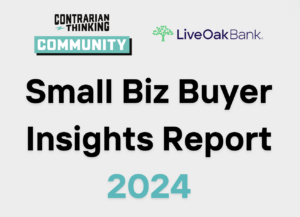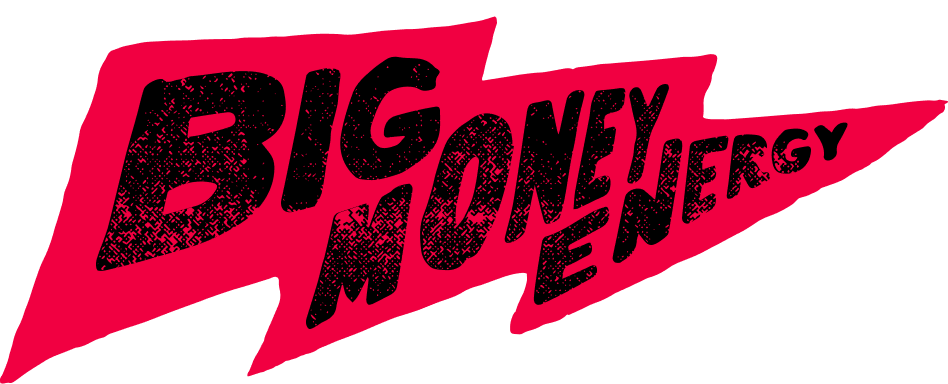
Wash, rinse, repeat. Sounds like a boring business, doesn’t it? But what if that business:
- Brings you consistent cash flow
- Runs smoothly thanks to existing systems and staff
- Allows you the free time to travel, buy other businesses, or just enjoy your life?
It’s not hard to start a cleaning business from scratch since you don’t need much equipment or professional training.
But purchasing someone else’s existing cleaning business is almost always the way to go if you can swing it.
Here’s why:
68% of new cleaning businesses will survive the first 2 years.
After 5 years, that number drops to below 50%.
By investing in a cleaning business with some history behind it, there’s a much better chance you can optimize it and come out on the right side of those numbers.

Combine that with the fact that the cleaning industry grows 20% year over year, and you have a scale-ready business.
Find Cleaning Businesses that are on the Market
First, know what you’re looking for when you begin your research. Do you want a residential cleaning business, a commercial cleaning company, or a mix of both?
A few things to keep in mind in deciding what makes sense for you:
- Do you want to do the cleaning yourself or hire others? (Keep in mind that commercial cleaners make an average of up to $22.54/hour while the average residential cleaner makes a max of $18.82/hour.)
- Commercial cleaners rely on night and weekend crews, while residential cleaning focuses more on traditional business hours.
- Commercial property jobs often target regular, long-term contracts with predictable schedules, while residential cleaning may bring more flexibility and one-off projects.
You can always buy a business that focuses on one and add the other in the future.
Once you decide what type of cleaning business you’re after, it’s time to start looking at the market.
You can work with a business broker to find available business. You might also decide to take up the research on your own. Scope what’s out there on the market to learn more about cash flow, expenses, and income possibilities.
Online marketplaces like Flippa and BizBuySell are great places to start, too.
And if you want to find businesses that aren’t on the open market right now, check out BizScout. (Side note: we own BizScout, but we made it to help people find awesome off-market deals.)
You can also find golden opportunities by talking to local networking connections and business communities. You never know who just needs a nudge in the right direction to sell.
Evaluate Your Potential Purchase
Congrats, you found it!
But that doesn’t mean you should jump to signing on the dotted line.
Before making a formal offer, conduct due diligence. Get deep into the weeds with the financials and operational info.
What you find will make or break a good deal.
Write up a letter of intent to show that you’re serious. That’s your first chance to bring up some negotiation concepts, such as how you intend to buy it and your ideal terms for takeover.
Look for the following in the research phase:
- Analyze all financial statements
- Confirm active revenue streams over the previous 2 years
- Identify possible growth opportunities as well as risks
- Review each client contract
- Inspect all equipment
- Look at past employee data: how often do people quit or get fired?
- Evaluate the competition: how can you stand out?
- Verify compliance with any business registrations, licenses, or permits needed
- Confirm or identify opportunities to adhere to sustainable practices
- Page through insurance policies
During the due diligence phase, you may find a few risks. Weigh each one to determine if it’s a challenge you want to take on and think you can handle.
Finance Your Purchase
To buy a cleaning business, you need a strong sense of the finances it will take to purchase the business and make any necessary investments.
You need to value the business to finalize your purchase decision and determine the funds needed to take over.
Value the business by following these 2 steps:
- Look at three years of tax returns and income statements
- Calculate the seller’s discretionary earnings, which is an idea of how much an owner might receive from owning the business. To get this, add:
- Net income (IRS-reported income)
- Interest
- Depreciation, if applicable
- Owner compensation (including health/retirement benefits)
- Discretionary expenses
With a starting number in mind, you might use one or a combination of the following four methods to get funding:
- Cash/personal loans
- Traditional bank loans
- Small Business Administration (SBA) loans
- Seller financing
If you have access to cash, you may get a better deal price with the seller. It depends on whether you want your own cash tied up in this deal (and how much liquidity that leaves you with) and whether any loans come with high interest rates or other terms.
Bank loans can work, but the red tape and paperwork required make them a less-than-ideal choice.
SBA loans may offer favorable terms if approved. These gold standard business loans provide 10-year (25 for commercial real estate loans) terms with low rates. You can use them for many purposes, come with no prepayment penalty, and they build your business credit.
While SBA loans pave the path to business ownership for many, they still use fixed terms with no flexibility.
The best way to purchase a cleaning business? Use seller financing.
You and the seller come to an agreement about how much upfront cash you’ll need as well as the payback period, and you make payments from company revenue once you take over.
No matter which financing route you choose, verify the valuation aligns with your budget and prepare your offer.
Master Negotiation

Before negotiating, answer these questions:
- What do you want?
- What are you willing to compromise on?
- What is most important to the seller?
Structure a deal that gives you leverage to start and run the business with minimal risk while appealing to the seller’s desires.
For example, maybe you want them to stay on for three months as an operator to teach you the ropes. You might offer a higher price to account for this, but it will cut down your learning curve. That could mean a much more profitable business.
Or maybe the seller has valued all their existing contracts in one package, but you plan to eliminate the residential deals and focus exclusively on the commercial. Share that info to help them understand what you value in the deal.
Ask for what you want and show your work from the due diligence phase. Account for any risks to protect your new investment.
Plan a Smooth Handover
The best course of action when you buy a business is to keep the current operator for a while. This gives you the chance to ask questions and learn the job. It will also enable you to take over parts of the business one at a time.
You can use this period to identify any other risks, like high employee turnover or problems with staff who have no cleaning experience.
As you step in, take proactive steps to maintain continuity with clients and employees.
Current clients and company workers will have concerns that you’re going to significantly change things. Make it easy for them to understand what’s changing and what isn’t.
Grow, Market, and Improve Your New Business

Once you’re in place as the owner, you have the chance to improve operations or marketing. Gather all your ideas for improvement that you found in your research and during the transition period.
This is where you can start optimizing the business to spur growth and profitability.
Streamline and Enhance Operations
Most cleaning businesses can achieve better profitability through operationalization. A few ways to make this happen include:
- Investments in better technology (like booking software or CRMs)
- Improved staff training and management techniques
- Streamlining processes to enhance efficiency
- Regularly assessing your goals and setting new milestones
For example, maybe the company works with a lot of one-time customers but doesn’t take the time to reach out again. That’s a lot of money left on the table when you consider the cost of acquiring new customers is 5 times higher than of retaining current ones.

You might use technology to connect with current customers and keep them coming back.
For example, you can use a CRM to share cleaning deal reminders at regular touchpoints to encourage repeat business.
Or you could add automatic reminders to leave testimonials, leveraging positive experiences to improve the conversion rate with other new customers.
Think of Ways to Expand Your Services
Expand your services or break into new markets to generate more revenue.
If you bought a commercial cleaning business, consider adding a residential wing.
Or specialize in certain projects, such as helping renters who move in and out of apartments or townhomes.
Offering things other people won’t do may create a monopoly. Here’s how one woman cleans house on clearing out crime scenes:
Build Your Brand
Make your mark in the local community with a strong brand. Enhance the existing marketing strategy by doing things like:
- Asking for reviews from current customers
- Tapping into digital marketing to show up for popular search terms in your area or by running ads on social media
- Highlighting before and afters on social media (with client permission, of course!)
- Rewarding current customers with future deals for sending others your way
- Participating in community events to build your name recognition and connect with potential customers
Clean Up in the Business World
Nearly 75% of Americans hate to clean their homes.
Many companies with offices or other commercial real estate don’t have enough cleaning needs to hire someone in-house, turning to commercial cleaning services instead.
If you can find a current cleaning company with a solid track record of customer satisfaction and earnings, it may open new doors of opportunity as a business owner.
If this is your next business opportunity, dust away your doubts with due diligence and make an offer that helps you get a leg up in the cleaning industry.
Then systematize and improve the business to create maximum revenue and profit.





